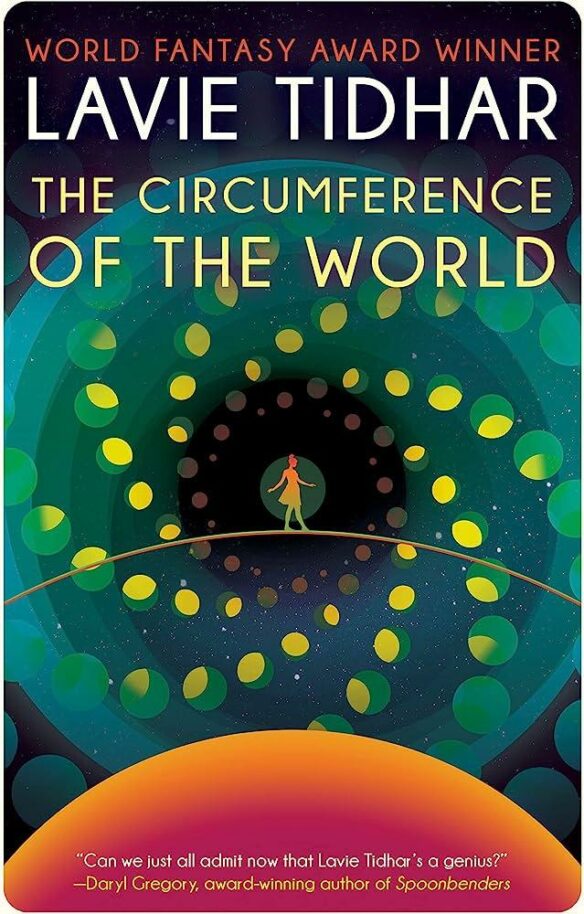
The Circumference of the World by Lavie Tidhar (Tachyon, 2023)
Review by Warner Holme: Lavie Tidhar’s The Circumference of the World is a book about a book, at least in part. But people associated with the book seem to disappear, either mysteriously or via outright kidnapping. While all connecting together, the book really can be divided into a number of major portions including the initial chapters which deal with people searching for it, portions of the volume, and a look at the life of the somewhat fictitious author.
The volume spends some entertaining time with a crime boss and his obsession with the author and his book, and at least as enjoyable time with Daniel Chase. Chase is a dealer in rare books. He is also an individual with the known difficulty of being functionally or completely facial blind, unable to recall or distinguish facial features. Most of the best writing in the book relates back to him, in no small part because of the care the author takes in creating descriptions that don’t rely on facial features in most ways. Instead everything from height and build and hair all the way to smells like cigarette smoke are used to identify specific individuals when they interact with Chase.
A large portion of the book is given over to text from, if not supposed to leave a complete text of, the missing book Lode Star. The text of it is entertaining, arguably better than the author it imitates, and it does well at attempting to reflect some of the ideas embedded in the book as a whole.
Unfortunately a lot of the book feels like apologia. John W. Campbell appears via correspondence and dreams, and is treated as forward thinking generally for his time on gender and sexuality. He claims for a fact that “readers would never stand for” a potential lesbian relationship implied on page 208, and suggests a male lead, but his story never quite reaches the levels of fascist intervention that he was known for. He is treated lightly, but his mania for strange theories and conspiracies is well known and touched on as well.
The author who marks as a major target, Eugene Charles Hartley, is a coded version of another figure, and given far too much sympathy as a result. He is a mid 20th century author of mediocre science fiction, including a lost book that is the subject of the hunt, and at the suggestion of Heinlein he starts a religion that makes him uber rich. His struggles and difficulties are treated sympathetically, and a reader may feel disgusted when this part of the story occurs. As even in his afterward Lavie Tidhar refuses to name the individual, this reviewer will do likewise.
The ideas of simulationism and echoes of reality as reality are nothing new to science fiction or the theoretical sciences. They are used, overall, quite well in this book both to accent the various difficulties and proving their own concepts and also which they could provide to a person or public trying to understand them. It’s interesting to note that recent releases by other successful authors have been touching on these ideas as well, albeit in such different fashion they barely feel like the same genre.
There are a lot of good ideas and clever thoughts in this book, but in other ways it tries to cut too close to certain realities and the result is instead a mix of apologia and occasional interesting ideas packed into a well-written volume. How well someone will react to what is going to depend heavily upon their tolerance for the former.
Discover more from File 770
Subscribe to get the latest posts to your email.
